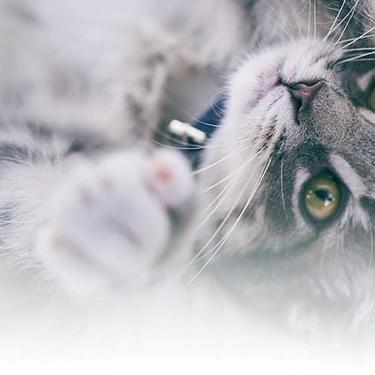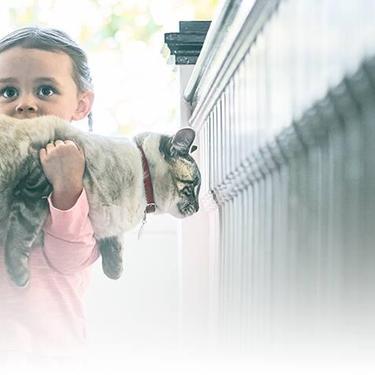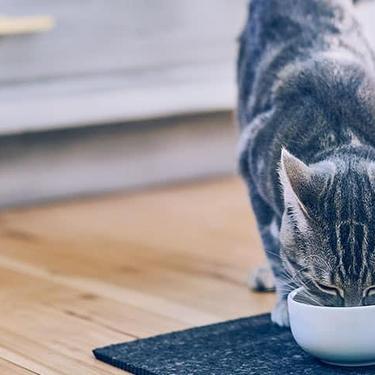
-
Find the right food for your petTake this quiz to see which food may be the best for your furry friend.Find the right food for your petTake this quiz to see which food may be the best for your furry friend.Health CategoryFeatured products
 Adult Large Breed Chicken & Barley Recipe Dog Food
Adult Large Breed Chicken & Barley Recipe Dog FoodSupports healthy joints, lean muscle, and beautiful coat for large breed dogs
Shop Now Hill's Science Diet Adult Healthy Mobility Large Breed Chicken Meal, Barley & Brown Rice Recipe Dog Food
Hill's Science Diet Adult Healthy Mobility Large Breed Chicken Meal, Barley & Brown Rice Recipe Dog FoodAdvanced nutrition shown to support joint health and improve mobility
Shop Now Adult Light Large Breed Chicken Meal & Barley Recipe Dog Food
Adult Light Large Breed Chicken Meal & Barley Recipe Dog FoodFewer calories for less active large breed dogs
Shop NowFeatured products Kitten Healthy Cuisine Tender Chicken & Rice Medley
Kitten Healthy Cuisine Tender Chicken & Rice MedleyDelicious tender chicken and rice in a mouthwatering sauce with precisely balanced nutrition to support 5 essential building blocks for lifelong health
Shop Now Adult Oral Care Chicken & Brown Rice Recipe Cat Food
Adult Oral Care Chicken & Brown Rice Recipe Cat FoodClinically proven kibble technology to reduce plaque & tartar build-up
Shop Now Adult Perfect Digestion Chicken, Barley & Whole Oats Recipe Cat Food
Adult Perfect Digestion Chicken, Barley & Whole Oats Recipe Cat FoodHill's Science Diet's breakthrough nutrition supports ultimate digestive well-being & healthy microbiome
Shop Now -
DogCat
- Cat Tips & Articles
-
Health Category
- Weight
- Skin & Food Sensitivities
- Urinary
- Digestive
- Kidney
- Dental
- Serious Illness
-
Life Stage
- Kitten Nutrition
- Adult Nutrition
Featured articles Cat vs. Dog: Which Is the Best Pet for Me?
Cat vs. Dog: Which Is the Best Pet for Me?Learn about important differences between dogs and cats, such as cost & space considerations. These factors can help you decide which pet is best for you.
Read More Adopting a Pet: What You Need to Know
Adopting a Pet: What You Need to KnowLearn the basics of adopting a pet, including where to begin and common questions you should ask yourself when deciding which kind of pet is best for you.
Read More Fun Ideas for Kids and Pets This Summer
Fun Ideas for Kids and Pets This SummerOutdoor summer activities with your dog or cat can be fun for kids, too. Learn how they also teach kids responsibility & creates a bond with their pet.
Read More -


Have you ever found yourself running late for a veterinary appointment because your feline friend refuses to hop into her cat carrier?
You're not alone. It's a common struggle for pet parents because cats usually equate their carriers with trips to the veterinarian, and they just don't want to leave the comfy confines of their house.
Because these visits are infrequent, notes Vetstreet, "plenty of otherwise mild-mannered house cats will pull out all the stops (teeth and claws included) to stay out of the dreaded box." It's not unusual for cat owners to call and cancel their appointments at the last minute.
Check out these five tips to help make transporting a cat less of a hassle.
1. Don't Hide the Carrier
Keeping the cat carrier tucked away in a closet or garage only adds to the mystery and fear. When she sees you pull it out, she'll bolt to her favorite hiding spot and stay put. To avoid this, make the carrier available (with the door open) all the time, or at least several hours before putting her in it, so she becomes desensitized and familiar with the crate.
2. Play with the Carrier
Incorporating the cat carrier into your playtime routine is another great way to help your kitty acclimate to it. She won't view it as a trap so much as a fun place to hide. Cats love small, dark spaces that offer security and safety, and her carrier provides both. Toss in a favorite toy, cat treats or food to entice her. With regular play, it shouldn't be long before she views the carrier as her very own private sanctuary. It can also be a good idea to use the cat carrier to transfer around the house, so that she gets used to being carried in it. When every trip in the cat carrier doesn't end up with a trip to the vet, she will not associate the carrier with bad experiences.


Tasty Tips
3. Make the Carrier Comfortable
Cats love their creature comforts, so line the carrier with a towel or blanket. These items offer an additional layer of security by giving her a place to snuggle up. In the event your nervous cat urinates in the carrier, this material will absorb the mess. It's a good idea to bring an extra towel and/or some newspaper so that your kitty isn't sitting in a soiled carrier.
4. Place Her in the Carrier
If your cat digs in her claws and refuses to go into the carrier on her own, you'll have to put her in yourself. One way to do this safely and to avoid scratches is to wrap her gently in a towel, which you can leave in the carrier with her. Place her in backside first so she can see what's going on. If you have a carrier with a top that opens, you may find it easier to lower her into the crate and quickly secure the closure.
 5. Purchase the Right Carrier
5. Purchase the Right Carrier
Getting the right carrier for your furry pal, one that makes her comfortable and safe, is a key piece of this puzzle.
First, determine the correct size of carrier. Your cat should have enough room to stand up and move around. If you're taking a long trip, account for space to accommodate food and water dishes. However, don't choose a carrier that's too big, as your cat won't be as secure in it.
Choose a carrier that will make her feel safe, while also feeling cozy. The material with which the carrier is made depends on your cat's temperament. If she is prone to soiling, you may want to choose a plastic carrier that easily wipes clean as opposed to a soft fabric that requires machine washing.
While looking for a carrier that's just right, ensure that all handles and latches are securely attached, especially with shoulder bag styles. If your cat is a master at unzipping or tearing apart Velcro closures, you'll definitely want to go with a traditional carrier with a gate that latches at the top and bottom, or she'll try to make a break for it.
Keeping your cat's safety and comfort in mind means less stress for you, your fur baby and the vet!


Christine O'Brien is a writer, mom, and long-time cat parent whose two Russian Blues rule the house. Her work also appears in Care.com, What to Expect, and Fit Pregnancy, where she writes about pets, pregnancy, and family life. Find and follow her on Instagram and Twitter @brovelliobrien.
Related products

Clinically proven kibble technology to reduce plaque & tartar build-up

Hill's Science Diet's breakthrough nutrition supports ultimate digestive well-being & healthy microbiome

Delicious roasted chicken and rice in a mouthwatering sauce

Delicious tender chicken and rice in a mouthwatering sauce with precisely balanced nutrition to support 5 essential building blocks for lifelong health
Related articles

Obesity affects more than 30 percent of cats in America. Learn how you can properly feed and exercise your cat to improve its weight management.

Provide the best possible treatment for cats with sensitive skin by spotting the signs, knowing the causes, and understanding the remedies. Learn more now.

Get helpful information on proper feline oral healthcare and why it's so vital to take care of your cat's teeth.

Understand the symptoms of a chronic upset stomach in your cat, and learn how to help sooth their discomfort.

Put your cat on a diet without them knowing
Our low calorie formula helps you control your cat's weight. It's packed with high-quality protein for building lean muscles, and made with purposeful ingredients for a flavorful, nutritious meal. Clinically proven antioxidants, Vitamin C+E, help promote a healthy immune system.
Put your cat on a diet without them knowing
Our low calorie formula helps you control your cat's weight. It's packed with high-quality protein for building lean muscles, and made with purposeful ingredients for a flavorful, nutritious meal. Clinically proven antioxidants, Vitamin C+E, help promote a healthy immune system.


